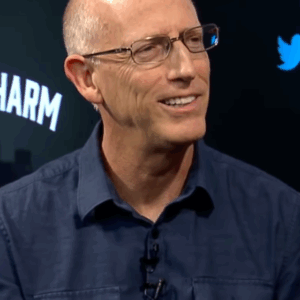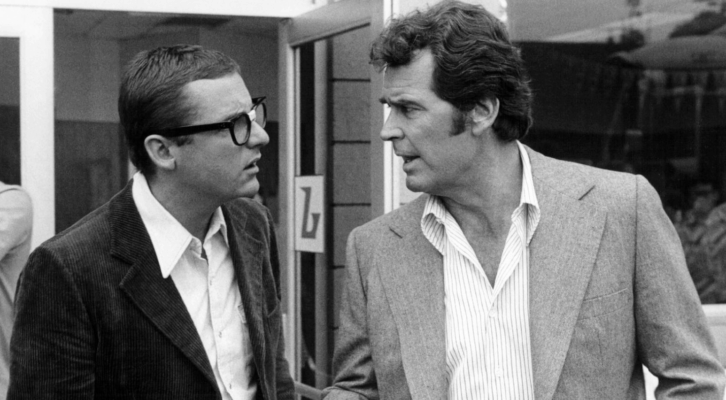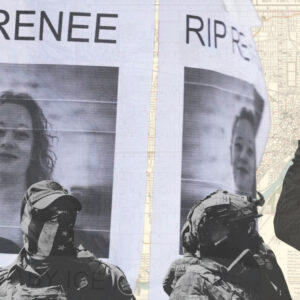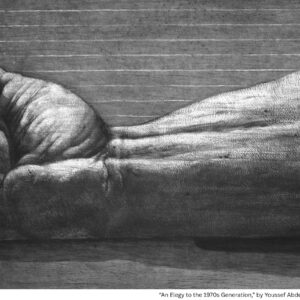
The Mess We're In: On the Inevitability of Post-Cold War Chaos
Historian Odd Arne Westad Wonders if it Could Have Been Different
If the United States won the Cold War, as I think it did, then the Soviet Union, or rather Russia, lost it, and lost it big. The main reason this happened was that its political leaders, in the Communist Party, did not give its own population a political, economic, or social system that was fit for purpose. The Soviet peoples had sacrificed immensely during the 20th century in an attempt at building a state and society of which they could be proud. The vast majority of citizens had believed that their hard work and defense of their achievements had created both a Superpower with a global reach and a better future for themselves. The ability to believe in improvement under Soviet rule, which would also be the pinnacle of Russian achievement, kept doubts away for the majority, even for those who ought to have known better. The crimes of the Soviet state were ignored by rulers and ruled alike, in a mutual conspiracy of silence.
Then, in the 1980s, it all came crashing down. Conditions at home got worse, not better. The state, which many had thought to be near omnipotent, failed at carrying out even the simplest tasks. Afghanistan and the cost of international isolation deprived the young of the future they wanted. And when necessary reform set in under Gorbachev, it too failed to deliver the progress that citizens craved. Although many Soviets embraced the freedom to speak openly, to vote, to form organizations, to practice their religion, or to watch films and read literature that had been banned, there was a gaping hole at the core of Gorbachev’s perestroika. Without bread, what freedom?, some of them asked, increasingly often.
And then the Communist Party self-destructed and the Soviet government suddenly was no more. With the exception of the Baltic states, independence came to the Soviet republics not as a preexisting demand from below, but more as an effect of the ongoing Soviet collapse. After December 1991 15 republics, all former parts of the USSR, suddenly had to find their own way in the world. Nationalism came to most of them as a justification for national independence, not the other way around. In that way the collapse of the Soviet Union was indeed a case of decolonization, reminiscent of what had happened to the British or French empires. No wonder that almost all of the post-Soviet states struggle with high levels of ethnic and political tension even after a generation of sovereignty.
It was worst for Russia itself. The collapse left Russians feeling déclassée, robbed of their position, whether they lived in Russia itself or were among the many who inhabited other new post-Soviet states. One day they had been the elite in a Superpower. The next they had neither purpose nor position. Materially things were bad, too. Old people did not get their pensions. Some starved to death. Malnutrition and alcoholism reduced the average life span for a Russian man from 66 in 1985 to less than 58 ten years later. To Russians used to a remarkable degree of (sometimes depressing) stability, theft, violence, and pornographic movies seemed to be the greatest achievements of post-Soviet freedom.
Among the thefts was one that will safely qualify as the raid of the century. This was the privatization of Russian industry and of its natural resources. Privatization had to come, some of its defenders say. After the USSR collapsed, its planned economy was moribund. But even if one accepts this argument, the way privatization happened was indefensible. As the socialist state was being dismantled, ownership of Russia’s riches was taken over by a new oligarchy emerging from party institutions, planning bureaus, and centers of science and technology. Instead of being used to cure some of the country’s many ills, resources were given away to the well-connected, especially among the friends and supporters of President Boris Yeltsin. Value created by generations was transferred to individuals who had no connection with the local community (but plenty of connections with those in power). Very often the new owners stripped their possessions of what they could sell and closed down whatever production was left. Unemployment rose from zero to 30 percent within three years. And all this happened while the West applauded Yeltsin’s economic reform.
In hindsight, at least, it is clear that the economic transition to capitalism was a catastrophe for most Russians. It is also clear that the West should have dealt with post–Cold War Russia better than it did. It is hard, however, to specify what alternative paths would have looked like. The key, I think, would have been the realization, so often lacking in the 1990s, that Russia would under all circumstances remain a crucial state in any international system because of its sheer size. It would therefore have been in the interest of the West, and especially the Europeans, to begin integrating the country into European security and trade arrangements as soon as possible after 1991. Such an approach would have demanded a lot of money and even more patience, given the chaos that reigned in Russia. Some argue that it would have been politically impossible, both within the West and within Russia itself. An effort the size of the Marshall Plan was certainly not in the offing. But both the West and Russia would have been considerably more secure today if the chance for Russia to join the European Union and possibly also NATO in some form had at least been kept open in the 1990s.
Instead Russia was kept out of the processes of military and economic integration that eventually extended all the way to its borders. It has given Russians the sense of being outcasts and has left the country sulking at Europe’s door. In turn, this has given credence to Russian jingoists and bigots, such as its current president Vladimir Putin, who see all the disasters that have befallen the country over the past generation as part of some preconceived US plan to reduce and isolate it. Putin’s authoritarianism and bellicosity have been sustained by genuine popular support. Most Russians would like to believe that all that has happened to them is someone else’s fault, instead of dealing with the immense problems in Russian society and in the Russian state themselves. The shocks of the 1990s have given way to a peculiar Russian form of uninhibited cynicism, which not only encompasses a deep distrust of their fellow citizens, but sees long-term, effective conspiracies against themselves everywhere in the world, often contrary to fact and reason. Over half of all Russians now believe Leonid Brezhnev was their best leader in the 20th century, followed by Lenin and Stalin. Gorbachev is at the bottom of the list.
For others around the world, the end of the Cold War undoubtedly came as a relief. With the threat of global nuclear annihilation gone, one of the big challenges to human existence had been removed, or at least suspended. There was also reason to hope, especially during the 1990s, that Great Power interventionism would be reduced, and that principles of sovereignty and self-determination would be respected. Europe and Japan had gained much from the Cold War itself, as had China in its latter phase. The division of Europe, and of Germany, had been a tragedy, as had the imposition of dictatorial regimes in the East. But the international system had given Europe almost 50 years of peace, unknown there during the first part of the century. And protected by that peace, resilient societies had grown up that were able to handle post–Cold War transformations remarkably well, including the unsparing transition to capitalism in the East and the unification of Germany, the biggest single project of the post–Cold War era. Japan, shorn of the distinct international economic advantages that the Cold War era had bestowed upon it, entered a period of low growth. But it did so from a very high level of development, which in 1995 saw the country’s GDP per capita still stand at more than 30 percent above that of the United States. “If this is a recession,” commented an African friend of mine, living in Tokyo, “we want one, too!”
China is often seen as one of the main beneficiaries of the Cold War. This is not entirely true, of course. The country saw imposed on it a European-style Marxist-Leninist dictatorship that was mostly out of tune with its needs. The result, during the Maoist era, were some of the most terrible crimes of the Cold War, in which millions died. But during the 1970s and 1980s, Deng Xiaoping’s China benefitted massively from its de facto alliance with the United States both in terms of security and development programs. The end of the Cold War came as a complete shock to the Chinese leaders, who suddenly realized that they—in part due to their own efforts combatting the Soviets—would be left to face the Americans in a unipolar world. From the Chinese perspective the wrong Superpower collapsed: they had believed that, at least long-term, the USSR was in ascendance, while the United States was declining. From the 1990s on, the Chinese Communist Party was terrified that US influence would subvert its rule at home and hem it in abroad, including among its Asian neighbors.
In the multipolar world that is now establishing itself, it seems likely that the United States and China will be the strongest powers. Unless they stumble at home, and both may easily do so, their competition for influence in Asia will define the outlook for the world. But the US relationship with China, or with Russia for that matter, is unlikely to develop into any form of Cold War. Both have political systems very different from the United States (or from each other). But both China and Russia are well integrated into the capitalist world system, and many of their leaders’ interests are linked to further integration. Unlike the USSR, these people are not likely to seek isolation or global confrontation. They will attempt to nibble away at US interests and dominate within their regions. But neither are, by themselves, willing or capable to institute global ideological conflict or militarized alliance systems. Rivalries, most certainly, which may lead to conflicts or even localized wars, but not of the Cold War kind.
Throughout the Cold War, it was the battleground regions that suffered most. Korea, Indochina, Afghanistan, much of Africa and Central America were left devastated. Some recovered, but for others devastation left cynicism in its wake. US Cold War clients may have been best at sheer plunder. Just dictators whose names start with the letter M—Mobutu (Congo), Marcos (Philippines), and Mubarak (Egypt)—among them amassed fortunes of an estimated $17 billion, according to recent estimates. But Soviet clients were not far behind. Angola, one of the countries most ravaged by the Cold War, could have been among the wealthiest parts of the world due to its mineral and energy resources. But today most of its population remain desperately poor. Meanwhile, the daughter of the president is reported to be the richest woman in Africa. Her net fortune is estimated at around $3 billion.
The ease with which many former Marxists adapted themselves to a post–Cold War market system begs the question whether this had been an avoidable conflict in the first place. What is clear is that the outcome was not worth the sacrifice, not in Angola, but probably not in Vietnam, Nicaragua, or for that matter Russia either. “If I had to do it over again,” confessed Bulgaria’s long-time Communist boss Todor Zhivkov, “I would not even be a Communist, and if Lenin were alive today he would say the same thing. . . . I must now admit that we started from the wrong basis, from the wrong premise. The foundation of socialism was wrong. I believe that at its very conception the idea of socialism was stillborn.” Even among those who were on the winning side the costs and risks have sometimes seemed too high: in lives, in expenditure, and in the threat of nuclear war.
But was it avoidable back in the 1940s, when the Cold War went from an ideological conflict to a permanent military confrontation? While post–World War II clashes and rivalries were certainly unavoidable—Stalin’s policies alone were enough to produce those—it is hard to argue that a global Cold War that was to last for almost 50 years and threaten the obliteration of the world could not in any form have been avoided. There were points along the way when leaders could have held back, especially on military rivalry and the arms race. But the ideological conflict that was at the bottom of the post–World War II tension made such sensible thinking very difficult to achieve. In that sense, it was its ideological origins that made the Cold War special and hyperdangerous. People of goodwill on both sides believed that they were representing an idea whose very existence was threatened. It led them to take otherwise avoidable risks with their own lives and the lives of others.
__________________________________
From The Cold War: A World History, by Odd Arne Westad. Courtesy Basic Books. Copyright 2017, Odd Arne Westad.
Odd Arne Westad
Odd Arne Westad is the S. T. Lee Professor of US-Asia Relations at Harvard University. The author and editor of eleven books, Westad lives in Cambridge, Massachusetts.




















